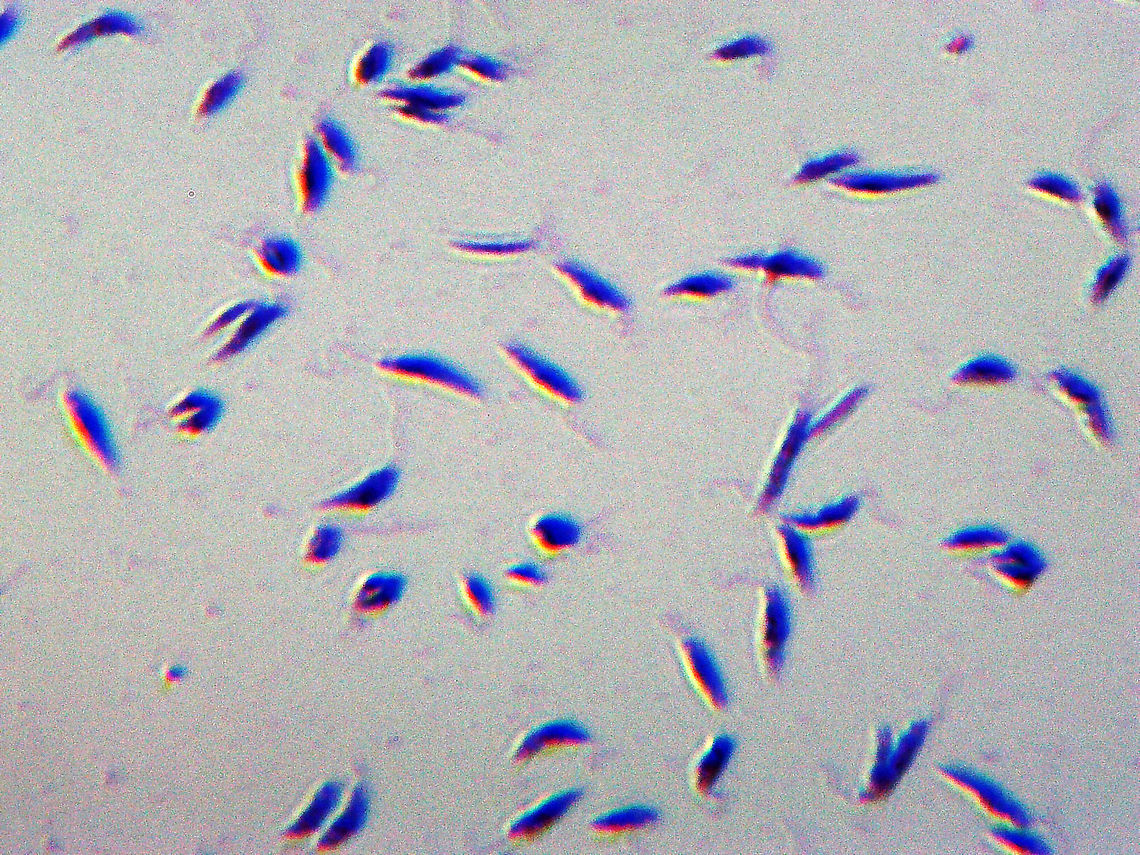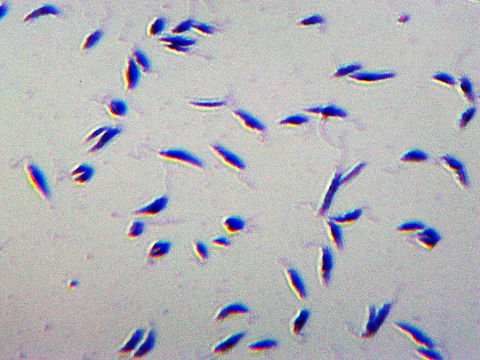 Species introCountry intro
Species introCountry intro
Leishmania donovani Kinetoplastids
Leishmania donovani is an intracellular parasite that causes visceral leishmaniasis (kala-azar), which is the most severe form of leishmaniasis. It infects the spleen, liver, and bone marrow with humans as the definitive host. It's transmitted by sandflies in the genus Phlebotomus in Old World (and Lutzomyia in New World).
Visceral leishmaniasis affects more than 100 million people worldwide, with 500,000 new cases and more than 50,000 deaths each year. It is fatal to humans. Treatment can be difficult because of drug resistance in patients, emerging strains of the parasite, and the toxicity of treatment. The drug miltefosine is highly effective (95% cure rate) in treating cases of leishmaniasis in India. I'm not sure of its efficacy against African strains.
(Slide is a smear)

''Leishmania donovani'' is a species of intracellular parasites belonging to the genus ''Leishmania'', a group of haemoflagellate kinetoplastids that cause the disease leishmaniasis. It is a human blood parasite responsible for visceral leishmaniasis or ''kala-azar'', the most severe form of leishmaniasis. It infects the mononuclear phagocyte system including spleen, liver and bone marrow. Infection is transmitted by species of sandfly belonging to the genus ''Phlebotomus'' in Old World and ''Lutzomyia''.. more
